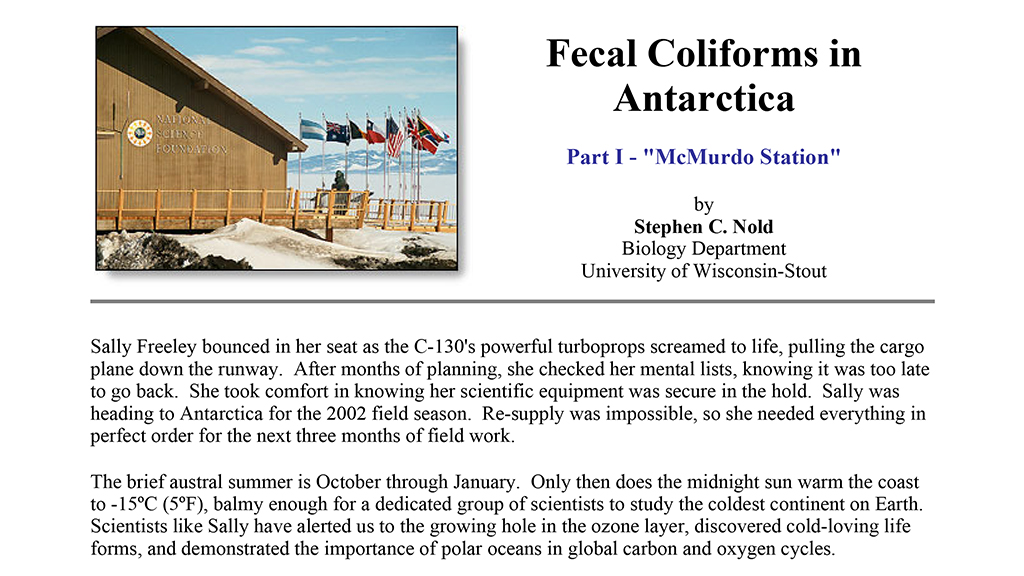Abstract
In this interrupted case study, students explore the environmental consequences of Antarctic research as they design experiments to assess the impact of disposing untreated sewage from a research station into the ocean. Students review experimental methods to measure coliform bacteria, examine data, and decide what actions, if any, should be taken. The case can be used in either a non-majors course in science literacy or a general microbiology class studying bacterial detection methods. For non-majors, the instructor would emphasize the mechanics of data collection and analysis and may touch on the environmental implications of finding fecal coliforms in Antarctic waters. For microbiology students, the instructor would highlight the bacteriology and pair the case with a lab.



